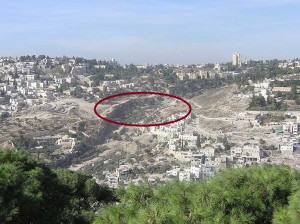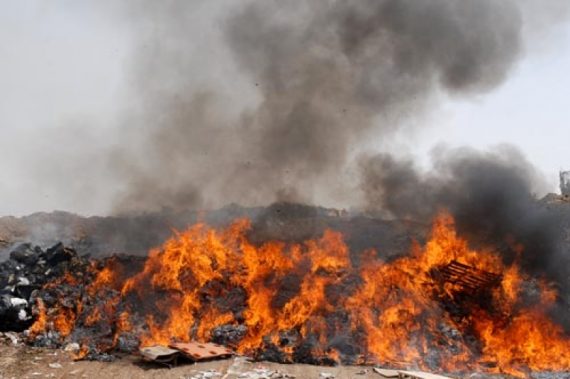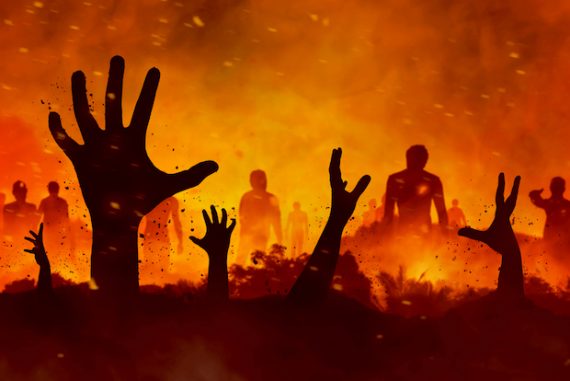(#AmazonAdLink)  My book, (#AmazonAdLink) What is Hell? is now available (#AmazonAdLink) on Amazon. I am doing a series of podcast studies that focus on some of the content from the book. The studies look at the eight key terms that are often equated with hell, and about a dozen key passages that are thought to teach about hell.
My book, (#AmazonAdLink) What is Hell? is now available (#AmazonAdLink) on Amazon. I am doing a series of podcast studies that focus on some of the content from the book. The studies look at the eight key terms that are often equated with hell, and about a dozen key passages that are thought to teach about hell.
If you want to learn the truth about hell and what the Bible actually teaches about hell, make sure you get a copy of my book, (#AmazonAdLink) What is Hell?
Also, if you are part of my discipleship group, there will be an online course about hell as well.
They key phrase we are looking at in this study is the word gehenna.
Does Gehenna refer to everlasting torment in hell?
 The word gehenna is a Greek transliteration from the Hebrew “Valley of Hinnom” (or Ge-Hinnom) which was a deep gorge to the southwest of Jerusalem. It was also called the Valley of Tophet.
The word gehenna is a Greek transliteration from the Hebrew “Valley of Hinnom” (or Ge-Hinnom) which was a deep gorge to the southwest of Jerusalem. It was also called the Valley of Tophet.
The valley has a sordid history. It was a place of idolatry, injustice, and spiritual infidelity. It was here that child sacrifices to Molech were performed in the days of Ahaz and Manasseh (2 Kings 16:3; 21:6; 23:10).
Furthermore, when 185,000 Assyrian soldiers died during their siege in the days of King Hezekiah, the bodies were piled in the valley of Hinnom and set on fire (Isa 30:31-33; 37:36). Jeremiah built on this history and said that if the Israelites did not turn and follow God, something similar would happen to them (Jer 7:30-34; 19:2-13). And indeed, after the slaughter of the Israelite people by the Roman military in 69-70 AD, this is what occurred.
But it was not just the history of prophecies of this valley which made it a place of horror. In the days of Jesus, the valley was used as the city dump.
The valley of Gehenna was not only filled with garbage, refuse, and sewage, but also with dead bodies that people were trying to dispose of (due to crime, sickness, poverty, or shame).
City officials occasionally sought to get rid of the garbage and also cover the stench by igniting the refuse on fire. But since there was so much garbage, and since more was added every day, the fire never really died. It burned day and night, seemingly forever and ever.
Even in places where there was no open flame, the piles of refuse would still smolder for weeks on end, sending constant billows of smoke and ashes into the air.
Yet not everything in Gehenna burned. As is the nature of flames, they go where they will, sometimes leaving entire sections untouched. In these areas, worms and maggots went to work on the refuse and corpses that were left behind.
Furthermore, as is the nature of all city dumps throughout the world (even to this day), the sick and poor often scavenged through the garbage looking for things to eat or sell. Some of these were undoubtedly lepers in various states of disease and decay who might have lived in the rock tombs on the lower end of the valley.
Imagine Going into Gehenna…
With all this in mind, imagine what it would be like to “take out the garbage” on a typical Jerusalem morning.
 As you haul your cart of trash down the hill into the valley, you first become aware of the smoke that rises continually from the dump. It is acrid and oily from the burning trash and causes your eyes to smart.
As you haul your cart of trash down the hill into the valley, you first become aware of the smoke that rises continually from the dump. It is acrid and oily from the burning trash and causes your eyes to smart.
But soon, not even the smoke can cover the stench that rises from rotting food and corpses on a hot Middle-Eastern day. The smell is so bad, you struggle not to vomit and retch.
But the smoke in your eyes and the smell in your nostrils are not the worst of it. As you descend down into the pit, it becomes harder to see. The sun turns blood red due to the smoke and there is a constant gloomy haze that surrounds you.
But this is a blessing in disguise, for what you do see is difficult to forget. On your left there is a mangled corpse. It is missing some limbs and is half-burned from the fire. The remaining half is crawling with maggots and buzzing with flies.
You avert your eyes, only to see a ragged leper stumbling through the smoke while eating a moldy piece of fruit he has pulled from the trash. He is missing his nose and an arm and appears to be a walking corpse.
Horrified, you decide you have traveled far enough into the pit. You dump your trash as quickly as possible before retreating back up the slope toward Jerusalem.
As the smoke recedes and the sun brightens above you, you peer back over your shoulder at where you left your trash, only to see half a dozen walking corpses shuffling toward your pile of garbage as fast as their mangled feet will carry them. They are eager to be among the first to dig through what you have left behind, hoping to find a bit of food or clothing that will get them through another day.
You shudder and pick up your pace to leave the nightmare valley behind and return to the land of the living.

Gehenna in the Days of Jesus
In the days of Jesus, this is what came to mind when someone used the word “Gehenna.” The term conveyed “a sense of total horror and disgust. … Gehenna was a place of undying worm and irresistible fire, an abhorrent place where crawling maggots and smoldering heat raced each other to consume the putrefying fare served them each day” (Fudge, (#AmazonAdLink) The Fire That Consumes, 161-162).
Therefore, since Gehenna was a literal place outside the walls of Jerusalem, the word should not be translated in our Bibles.
We do not translate “Jerusalem” as “City of Peace,” “Bethel” as “City of God,” or “Gilgal” as “circle,” even though that is what those place names mean. So also, we should not translate Gehenna as “hell” or any other word.
 It should be left as it is, thereby alerting the reader to the fact that the text is referring to the valley called Gehenna outside the gates of Jerusalem. Translating it as “the Valley of Hinnom” would also be fine.
It should be left as it is, thereby alerting the reader to the fact that the text is referring to the valley called Gehenna outside the gates of Jerusalem. Translating it as “the Valley of Hinnom” would also be fine.
But even if we leave gehenna as “Gehenna,” we are still faced with the question as to whether Jesus had something more in mind than the physical and literal Valley of Hinnom when He taught about gehenna.
In other words, when Jesus spoke about gehenna, was He only speaking about the Valley of Hinnom, or was He using the imagery, history, and inherent horror of this valley to teach His listeners about the experience of some people in the afterlife?
The Symbolism of Gehenna
When the various texts are considered (cf. Matt 5:22, 29, 30; 10:28; 18:8-9; 23:15, 33; Mark 9:43-47; Luke 12:5; Jas 3:6), the answer becomes obvious. Jesus (and James, who is the only other person in the New Testament to speak about gehenna), is indeed using the Valley of Hinnom in a symbolic way, but not to teach about what happens to some people in the afterlife, but rather to teach about what can happen to some people in this life.
People who are sent to the Valley of Hinnom (usually because of crime or leprosy) lose their friends and family, and face a life filled with horror, decay, and destruction.
The warnings about gehenna are given by Jesus so that we do not destroy our health, life, family, friendships, and reputation in this life. God does not want us to live in the Valley of Death, but to instead enjoy everything God has given to us. In his book, Surprised by Hope, N. T. Wright says this about gehenna:
When Jesus was warning his hearers about Gehenna he was not, as a general rule, telling them that unless they repented in this life they would burn in the next one. As with God’s kingdom, so with its opposite: it is on earth that things matter, not somewhere else.
His message to His contemporaries was stark, and (as we would say today) political. Unless they turned back from their hopeless and rebellious dreams of establishing God’s kingdom in their own terms, not least through armed revolt against Rome, then the Roman juggernaut would do what large, greedy and ruthless empires have always done to smaller countries (not least in the Middle East) whose resources they covet or whose strategic location they are anxious to guard.
Rome would turn Jerusalem into a hideous, stinking extension of its own smoldering rubbish heap. When Jesus said “Unless you repent, you will all likewise perish,” that is the primary meaning He had in mind (Wright, (#AmazonAdLink) Surprised by Hope, 176).
Gehenna is NOT hell
Therefore, a word that is commonly translated as “hell” in the New Testament, gehenna does not in fact refer to a place of burning torture or torment in the afterlife.
Instead, the word gehenna refers to a literal place outside the walls of Jerusalem.
 Jesus uses the history and imagery of this place to warn His disciples about what can befall them in this life if they do not follow His teaching and take steps (sometimes drastic) to protect themselves and their loved ones from the devastation of sin.
Jesus uses the history and imagery of this place to warn His disciples about what can befall them in this life if they do not follow His teaching and take steps (sometimes drastic) to protect themselves and their loved ones from the devastation of sin.
When Jesus speaks about gehenna, He is not warning about hell in the next life, but a hellish existence in this life. We will see more about this in future studies when we look at the actual New Testament texts in which the word gehenna is used.
But for now, we have a few more New Testament words to look at which are often thought to be references to hell. We will look at the word hades next …
But whatever hell might be, it is not an eternal garbage dump where God sends some humans to rot and burn for eternity. The word gehenna in the Bible teaches nothing of the sort. It was a literal valley outside of Jerusalem that symbolized the death and destruction that can come into people’s life NOW, if they refuse to follow the ways and teachings of Jesus. The symbol of gehenna tells us nothing the afterlife.
 Do you have more questions about hell? Are you afraid of going to hell? Do want to know what the Bible teaches about hell? Take my course "What is Hell?" to learn the truth about hell and how to avoid hell.
This course costs $297, but when you join the Discipleship group, you can to take the entire course for free.
Do you have more questions about hell? Are you afraid of going to hell? Do want to know what the Bible teaches about hell? Take my course "What is Hell?" to learn the truth about hell and how to avoid hell.
This course costs $297, but when you join the Discipleship group, you can to take the entire course for free.





 However, the Annihilationist also agrees with the Universalist that it would be monstrous for God to torture people for all eternity. The biblical texts which seem to imply an eternal existence in fire are instead understood as texts that describe an eternal destruction so that those who undergo it simply cease to exist.
However, the Annihilationist also agrees with the Universalist that it would be monstrous for God to torture people for all eternity. The biblical texts which seem to imply an eternal existence in fire are instead understood as texts that describe an eternal destruction so that those who undergo it simply cease to exist.
